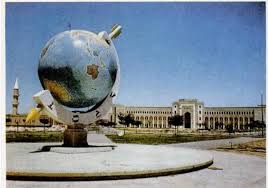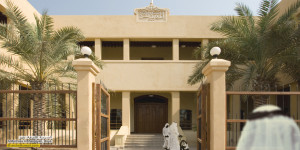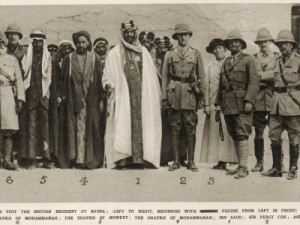




“Somali President Mohammed Mohammed Abdullahi Farmajo request for mediation Arabia and the United Arab Emirates to persuade not to complete the establishment of a military base in “Somaliland”……..”
“Somaliland signs agreement allowing the United Arab Emirates to set up a military base in Berbera with a 25-year lease…”
An interesting and unexpected development in the Middle East in recent months. The United Arab Emirates (UAE) is getting deeply into the business of foreign military bases. In one sense it has been in it for many years now. From early on, the UAE has had military bases on its territory for various counties: the United States, Britain, France, Australia, New Zealand, Netherlands, as well as Canada (canceled after a commercial dispute). All the while vigorously criticizing foreign (non-Western) bases in Iraq and Syria. Not bad for a country of a little more than 1 million citizens (plus about 6 million foreign residents).
Now the UAE, ostensibly a part-time and wary ally of Saudi Arabia, is getting into the dubious business of establishing foreign bases of its own. Basically the UAE are (for now) the strongest foreign power in the Aden area of South Yemen, having easily outsmarted and elbowed out the Saudi Wahhabis. The Saudis are closer allies to the deposed president Hadi and his corrupt old partners in misruling Yemen (the Islah, the local Muslim Brotherhood). The UAE rulers hate nothing more than the Muslim Brotherhood.
The main Saudi problem in Yemen is that they share a long border with that country. They occasionally get tempted to test these borders. Hence their fear of any perceived foreign (non-Western) influence over Yemen, be it real or imagined. The war they have been waging on Yemen for more than two years often comes back to haunt them in the form of Yemeni retaliatory attacks on their border towns and cities. As well as Yemeni rockets, reportedly local versions of Iranian and maybe Russian missiles.The rockets are a new introduction into the war, and the Yemenis in the capital Sanaa have promised more and more potent ones to come if the Saudis do not desist.
So the Saudis are stuck in a destructive but futile genocidal bombing campaign (with strong and indispensable American and British help), as well as a worrying border war. They are cornered, while the Emiratis expand their influence in South Yemen and now in the Horn of Africa. The Emiratis can better afford it than the Saudis who need to support and subsidize about 16 million citizens (there are also about 10 million foreign residents, a few million of them reportedly illegal).
To the Horn of Africa. That area seems like a favorite place for many powers to establish military bases in recent years. The Russians (Soviets) had a large base at Berbera for years under the Marxist Siad Barre military regime of Somalia. Eritrea and Djibouti have both had bases or presences of the French, Israelis, Iranians and others (including the famous pirates). Natural for an impoverished region. Now the UAE is establishing bases in Somaliland, formerly part of Somalia, which apparently still considers it part of its sphere. To the extent that Somalia can have a sphere. There have been earlier reports of a UAE base in Eritrea as well. There have been reports of a potential UAE presence in Libya as well, but that would be a foolish undertaking.
It is not clear what is the purpose of all these foreign bases and presences by a small country like the UAE. Only Oman among GCC states has had an extensive foreign presence until the 19th century, mainly in East Africa (including Zanzibar).
Oddly the Saudis don’t seem interested in foreign bases, except in Bahrain. But that is a historic cultural thing: Saudis, especially the elite Najdis of Central Arabia, were historically a landlubber people never known as sea-going people, unlike others like the Emirates (or Oman and Kuwait).
There is more. The UAE often splits from the Saudis on Yemen. The two alleged allies support different outlooks for Yemen, but the UAE can afford it financially although they have limited human resources and need local groups as allies. Hence the Hirak Movement which wants South Yemen (capital Aden) to regain the independence it lost in 1990.
My educated guess is that the UAE has the upper hand over the Saudis in that southern part of Yemen. But they need to reckon with three groups that have been strengthened by the destructive Saudi-led air war on Northern Yemen: the Southern Secessionists, Al Qaeda in the Arabian Peninsula (AQAP), and Islamic State (ISIS). These three groups have gained strength as the Saudis bombed their main enemies in Yemen, the Houthis.
In any case, in the end neither of these Arab allies can last in Yemen. It is already bleeding them, and will kill off many of their soldiers before they realize they have to leave. And they will leave: it has been the story of Yemen since the days of the ancient Persian and Roman empires. The rugged tribal country wears them down, and the aspiring conquerors are forced to give up and leave. A hostile foreign power cannot control Yemen, it has been the case since the days of the rule of Balqis, the Queen of Sheba.
More on this later, stay tuned.
Cheers
Mohammed Haider Ghuloum





